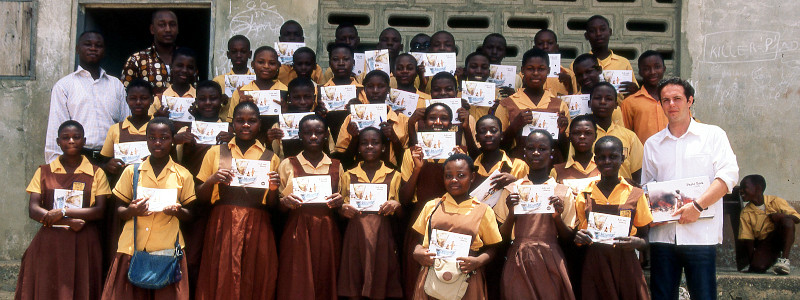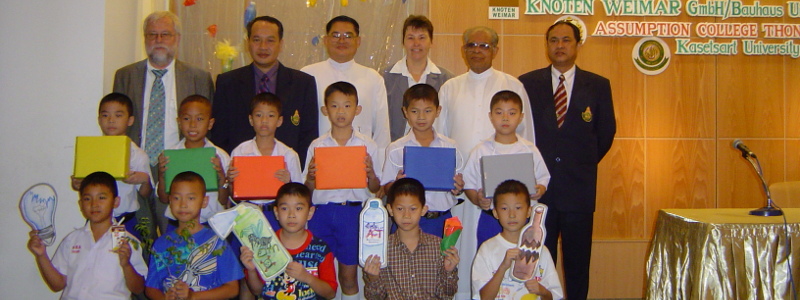- S. Trebbin, Dipl.-Ing. U. Nauber B.Sc.
- Education
Mama Ghana
A textbook for environmental education in primary schools
by Mama Ghana
Authors: S. Trebbin, Dipl.-Ing. U. Nauber B.Sc.
Abstract
Also regions or city quarters that still cannot ensure safe living spaces are required to make especially children and adolescents aware of the dangers and chances of their environment. Until the year 2015, the United Nations had proclaimed the Decade of Education for Sustainable Development in its member states. Supporting the UN initiative, this work describes a pilot project conducted in Ghana that is intended to lay the basis for a national environmental education campaign in West Africa.
This project examines a core problem of Ghana – the flood of waste from plastics in the public space. The content and layout of the campaign concept are explained by means of a textbook developed for the campaign. Deviating from conventional textbooks it was possible to put a new education strategy to the test.
In preparation for an edition of a printed textbook at Ghanaian primary schools nationwide the campaign book was evaluated during test classes at four representative primary schools.
Auch in Regionen oder Stadtteilen in denen weiterhin kein unbedenklicher Lebensraum gewährleistet werden kann, müssen vor allem die Kinder und Jugendlichen ein Bewusstsein für die Gefahren und Chancen ihrer Umgebung entwickeln. Bis zum Jahr 2015 ist die UN Weltdekade zur Bildung für nachhaltige Entwicklung in deren Mitgliedsstaaten ausgerufen. Unterstützend zur Dekade soll in einem Pilotvorhaben in Ghana für Westafrika die Grundlage für eine nationale Umweltbildungskampagne mit dieser Arbeit gelegt werden.
Es wird dabei ein Kernproblem Ghanas - der Flut von Abfall aus Kunststoffen im öffentlichen Raum betrachtet. Anhand eines Schulbuches für die Kampagne wird dessen Inhalts- und Gestaltungskonzept erläutert. Abweichend von herkömmlichen Schulbüchern konnte eine neuartige Bildungsstrategie erprobt werden.
Als Vorbereitung für einen nationalen Schulbuchdruck in Ghanas Basisschulen wurde das Campagnenbuch in vier repräsentativen Basisschulen in einem Probeunterricht evaluiert.
Download




